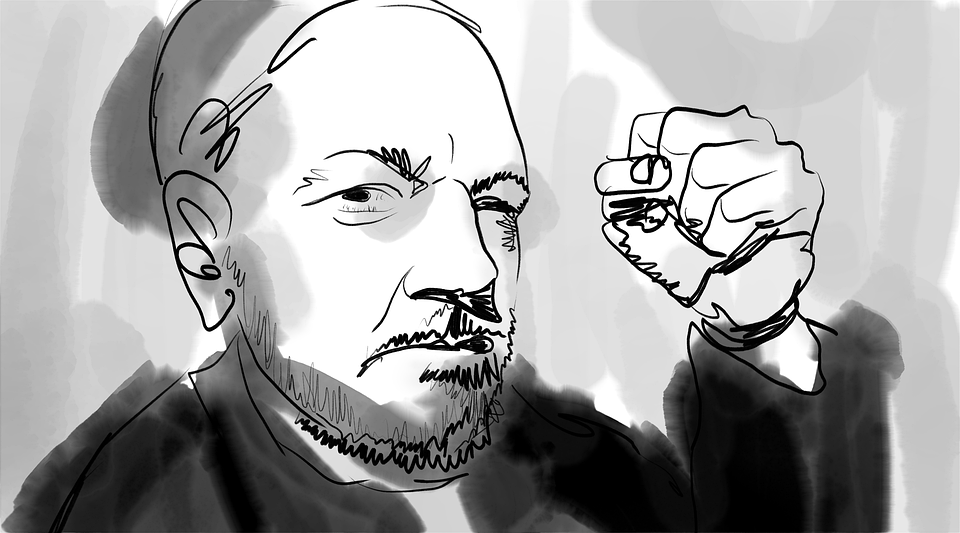 With the ongoing trials of WikiLeaks founder Julian Assange, his potential further imprisonment poses many questions about the freedom of press and free speech in the US and around the world.
With the ongoing trials of WikiLeaks founder Julian Assange, his potential further imprisonment poses many questions about the freedom of press and free speech in the US and around the world.
So far: the case of Assange
The Australian journalist, publisher and activist founded WikiLeaks in 2006, with the goal to make processes and acts more transparent, even regarding the highest and most secure institutions around the world. Through the safe algorithm of WikiLeaks, people working for these institutions are able to upload classified and top secret documents. These people who “leak” such cases for the wider audience of the internet are called whistleblowers, and their safety is pretty much up to the hands of WikiLeaks.
Launched almost a decade ago, the first criminal investigation of Assange, the founder of the site was the direct consequence of WikiLeaks publishing war logs and thousands of classified documents of the Iraq and Afghanistan wars. In the fall of 2010, Sweden also issued an arrest warrant against Assange on the basis of allegations of sexual assault, but dropped the investigation in 2019.
Assange received asylum in London’s Ecuadorian Embassy in 2012, but was arrested and sentenced to prison for 50 weeks in early 2019 for violating his Bail Act at the Embassy. A month later he became the first publisher to be charged unter the US’ Espionage Act of 1917, facing up to 175 years in prison if found guilty.
As of now, Assange awaits further decisions since in early January British judge Vanessa Baratiser ruled that he should not be extradited on grounds of mental health, a decision that came after Assange’s partner claimed last December that the man is being held in ‘atrocious’ prison circumstances. Based on a report by The Sun, Assange also suffers from hallucinations and suicidal thoughts, even a razor blade has been found once in his room.
Even though his extradication was ruled against, the UK refuses to give the WikiLeaks founder bail. He had already been offered shelter by a member of parliament of his home country Australia, and the president of Mexico quickly reacted to the ruling of the UK court, promising to give Assange political asylum.
The toll on press freedom
The incredibly long case of Assange poses further questions about the state of global press freedom. If we take a step away from the personal allegations Assange is facing and look at the greater scheme of whistleblowing and telling the truth about certain well-connected and influential agencies, we can observe that the case of Assange does not stand out at all. The WikiLeaks founder was not the only one to get imprisoned; Chelsea Manning, for example, the whistleblower behind the aforementioned war logs had spent years in prison for exposing the top secret documents.
This trend of the imprisonment of journalists and publishers not only challenges, but threatens the exercise of freedom of speech. The fear of being prosecuted holds whistleblowers back from releasing their information, which, most of the time, are important for the public to know. Through its algorithm, WikiLeaks provided a safe space for whistleblowers, yet the safety of the site is clearly questioned after all that happened.
The wrongdoings and crimes of national bodies and agencies cannot be withheld on a larger scale, since these organizations not only affect those caught in the midst of war, but are often influencing the main aspects of societies around the world, such as politics and human rights.
Unfortunately a stagnation of the release of these documents is already present, since there hasn’t been any bigger information-dump on WikiLeaks since 2018. Of course the site had been rightfully criticized for leaking unnecessary private information of the involved parties like social security numbers and addresses, making the releases ethically questionable and the topic of whistleblowing more complex.
The unfiltered way of operation is not the only attackable aspect; WikiLeaks has also been under fire for meddling with politics, such as the case of the release of Hillary Clinton’s emails, which highly influenced the results of the 2016 US presidential elections.
But we have to see this problem from a broader perspective and ask ourselves the question if the discomfort of war criminals, law-offending politicians and peccant individuals is more important than the truth being published.
The future
This problem is immensely complex and there have not been any satisfying solutions thus far that would benefit the whistleblowers and publishers. The laws surrounding internet press and online journalism are still shallow, and they are often not looked at from the perspective of freedom of speech, but are viewed through lenses which are more beneficial for the individuals and organizations whose private information had been published.
That is acceptable if we are speaking of someone who does not have a direct influence on crucial aspects of life, but as in the case of Assange and WikiLeaks, the shared data gives insight to the operation of governmental bodies that oversee everyday life.
That is why new laws and regulations, such as the EU Whistleblower Directive should be further implemented, protecting the rights of whistleblowers, and courts around the world should start viewing this issue as one that could seriously impact free speech and the press. The road to an acceptable solution is compound and unyielding, but it is one the world has to take in order to develop global press freedom and promote human rights.
by Boglárka Nyirádi (student at the University of Pécs)
Source of photo: Pixabay